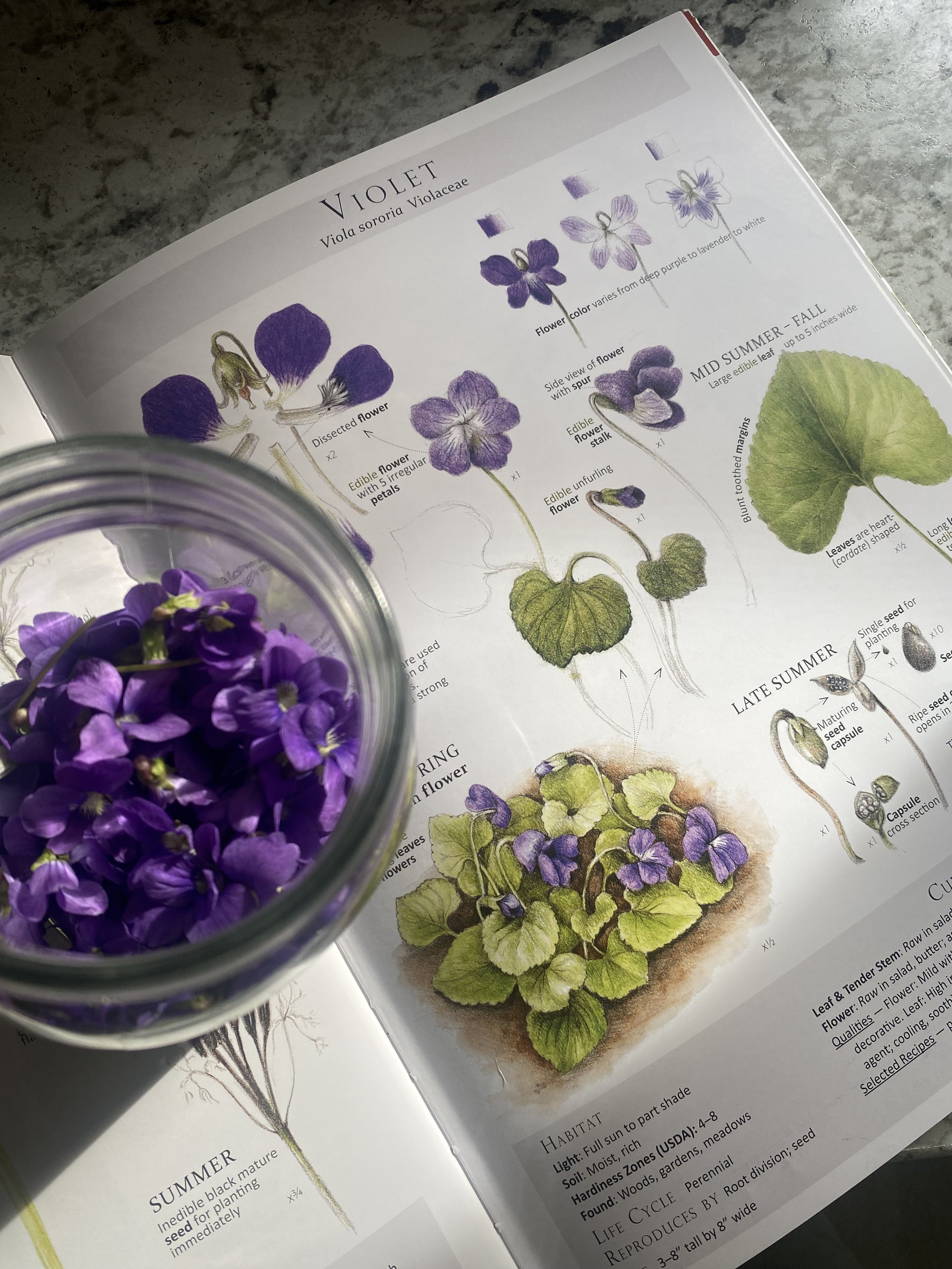Wild Violet Uses & Herbal Properties
The Beauty and Benefits of Wild Violets
Spring brings a burst of color into our lives, and among the vibrant blooms that grace our surroundings, wild violets stand out with their delicate petals and heartwarming charm. Beyond their beauty, these little purple flowers offer a myriad of benefits, making them a delightful addition to any garden or foraging adventure. Traditionally, wild violet flowers and leaves have been used in herbal medicine for their therapeutic properties. These flowers are thought to help with breathing and ease coughs and colds because their leaves release a slippery substance that soothes and moisturizes the mucus membranes in the digestive, respiratory, and urinary systems. The leaves are packed with healthy vitamins and minerals, especially vitamins A and C. The beautiful edible flowers also contain a lot of vitamin C and add a lovely touch to any meal. Violets can also help with sleep by providing your body with calming properties. Violet leaves have also shown potential in skincare, possessing anti-inflammatory properties that can help reduce skin irritations and promote a healthy complexion. For those looking to connect with nature and utilize its gifts, wild violets can be a valuable ally in your holistic health journey.
A Touch of Nature's Palette
Wild violets, scientifically known as Viola, typically bloom from early spring to late summer, showcasing shades of purple, blue, and white. Their heart-shaped leaves and soft, fragrant flowers create a picturesque scene in woodland areas, meadows, and even in gardeners' backyards. These modest plants thrive in various conditions, often growing in shaded areas, reminding us that beauty can flourish even in the quietest corners.
In Your Garden
Cultivating wild violets in your garden can be both an enriching and aesthetically appealing endeavor. They thrive in well-drained soil and prefer partially shaded areas, making them perfect for garden borders or naturalized spaces. Their low maintenance nature and ability to attract pollinators, such as bees and butterflies, enhance biodiversity in your garden, making it a vibrant haven for all.
Wild Violet Recipes:
References
The Herbal Academy. (2015). A Family Herb: Violet Plant. Retreived from https://theherbalacademy.com/blog/a-family-herb-violet-plant/#:~:text=The%20leaves%20are%20chock%20full,accompanied%20by%20heat%20and%20dryness.




